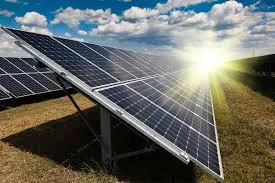3KW 48V Inverter for Off-Grid Solar Power Systems and Applications
Understanding Off-Grid Inverters The 3kW 48V System
In recent years, the demand for off-grid solar power has increased significantly as individuals seek to achieve energy independence, reduce their carbon footprint, and lower utility bills. One of the key components of an off-grid solar system is the inverter, which converts the direct current (DC) produced by solar panels into alternating current (AC) for everyday use. In this article, we will explore the characteristics and benefits of a 3kW 48V off-grid inverter.
What is an Off-Grid Inverter?
An off-grid inverter is a device that enables a solar energy system to function independently of the electrical grid. This kind of inverter is essential for those who live in remote locations or wish to pursue a self-sufficient lifestyle. Off-grid inverters are specifically designed to convert the DC electricity generated by solar panels and batteries into AC electricity that can be used to power household appliances, tools, and other electrical devices.
The 3kW 48V Configuration
The specifications of 3kW and 48V are significant when considering an off-grid inverter.
- 3kW Rating This indicates that the inverter can supply up to 3,000 watts of power. A 3kW inverter can support a variety of loads, including refrigerators, lights, and small appliances. The key is to ensure that the total power consumption of all devices does not exceed this limit at any given time. - 48V System The choice of a 48V battery system allows for more efficient storage and conversion of energy. A higher voltage system usually results in lower current for the same power load, which reduces the size of wiring needed and minimizes energy losses in the cables. Additionally, 48V systems are particularly suitable for larger solar installations where high efficiency and reliability are critical.
Benefits of an Off-Grid Inverter
1. Energy Independence One of the most appealing aspects of off-grid systems is the freedom from utility companies. With a 3kW 48V inverter, homeowners can harness solar energy to meet their power needs without depending on the grid.
2. Sustainability Utilizing solar energy helps reduce reliance on fossil fuels, contributing to lower greenhouse gas emissions. Off-grid inverters play a crucial role in promoting renewable energy usage.
3. Cost Savings While the initial investment for solar systems can be significant, the long-term savings can be substantial. Reducing or eliminating electricity bills is a major incentive for many users.
inverter off grid 3kw 48v

4. Backup Power In case of power outages, having an off-grid inverter ensures that essential appliances and systems remain operational. This is particularly important for those living in areas prone to natural disasters.
5. Flexible Installation A 3kW 48V inverter offers flexibility in installation. The system can be tailored to meet specific needs and can be expanded as power requirements grow or as budget allows.
Considerations When Choosing an Off-Grid Inverter
Selecting the right off-grid inverter involves considering several factors, including
- Power Requirements Assess the total power consumption of devices you want to run. Ensure the inverter can handle the peak loads without tripping.
- Battery Compatibility Ensure that the inverter is compatible with the battery type being used, whether lithium, AGM, or lead-acid.
- Efficiency Ratings Look for inverters with high efficiency ratings to minimize energy loss during conversion.
- Features and Functions Many modern inverters come with additional features such as remote monitoring, built-in chargers, and advanced safety protections.
Conclusion
Investing in a 3kW 48V off-grid inverter can significantly enhance your energy independence and sustainability efforts. By carefully assessing your power needs and system compatibility, you can ensure a reliable and efficient off-grid solar solution that meets your requirements. As the world moves toward cleaner energy alternatives, off-grid systems will undoubtedly play a vital role in achieving energy resilience for households and communities alike.
-
Unlocking Energy Freedom with the Off Grid Solar InverterNewsJun.06,2025
-
Unlock More Solar Power with a High-Efficiency Bifacial Solar PanelNewsJun.06,2025
-
Power Your Future with High-Efficiency Monocrystalline Solar PanelsNewsJun.06,2025
-
Next-Gen Solar Power Starts with Micro Solar InvertersNewsJun.06,2025
-
Harnessing Peak Efficiency with the On Grid Solar InverterNewsJun.06,2025
-
Discover Unmatched Efficiency with the Latest String Solar InverterNewsJun.06,2025







